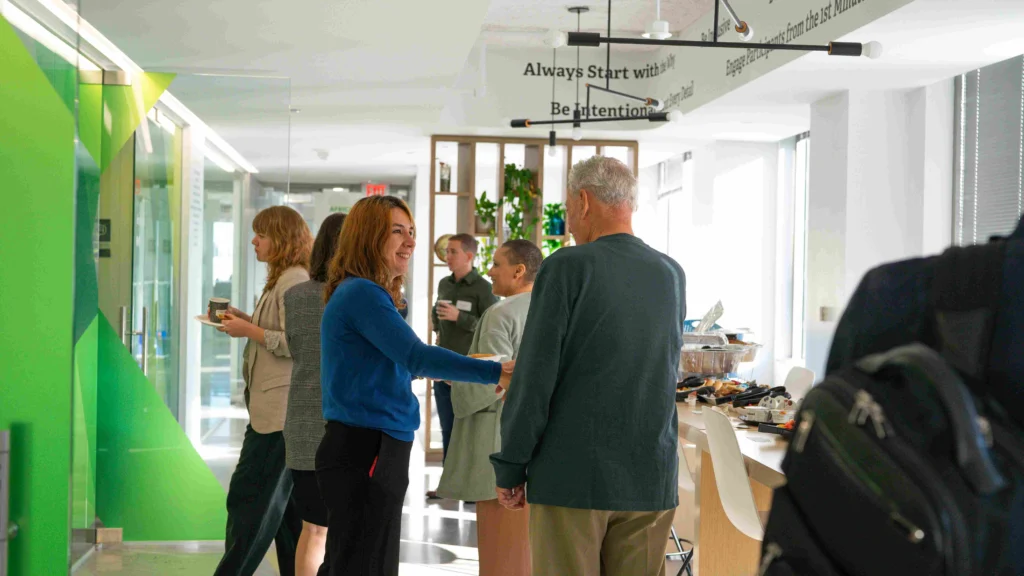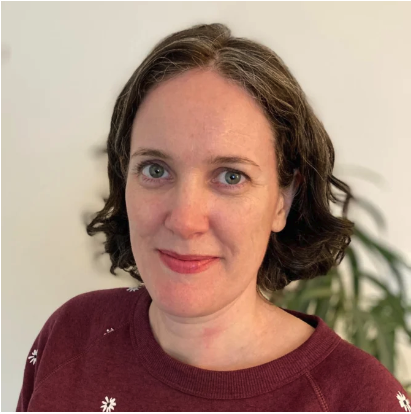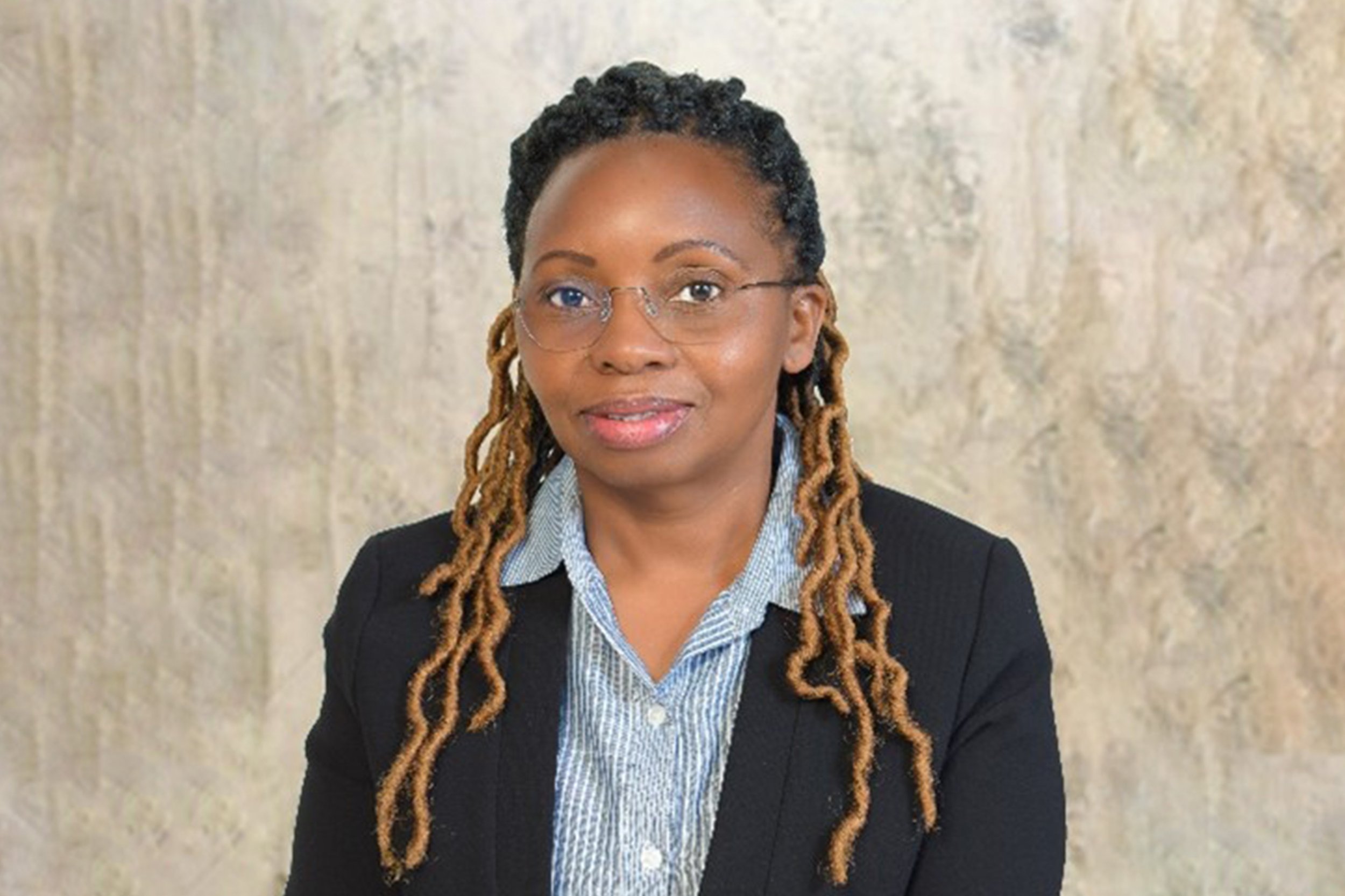Strengthening Local Coalitions for Change: What’s Next?

Kicking off the Governance Action Hub
In October, 2023, over 70 participants gathered at the Governance Action Hub launch event in Washington, DC, and online. Fittingly, our host was the Open Gov Hub, a space founded in 2012 to encourage collaboration among organizations in the governance and anti-corruption space.
The event highlighted the urgent need for audacious thinking and action in addressing governance challenges, especially an approach that revolves around local issues.
View a video of the full event below.
Transforming local dynamics
The Governance Action Hub focuses on harnessing and increasing the agency of local stakeholders, engaging them in the solution of the challenges they face, and pursuing goals they deem important as a group. This includes challenges such as climate change and the energy transition, the use of extractive revenue in local development processes, and the consequences of state capture and corruption.
The Governance Action Hub will strengthen strategies for collective action, elevate and support local stakeholder ideas, promote cross-learning, and facilitate the coordination of local and global action. It will foster audacity by building on local coalition efforts, enabling inclusive spaces, and proactively recruiting new voices into existing efforts. That collaborative model can impact the local ecosystem and address pre-existing governance challenges including fragmented relationships, limited trust, and traditional approaches to reform.
With the Governance Action Hub, we aspire to be flexible, focusing on the priorities of local stakeholders. Rather than leading projects, we will facilitate coalitions for action and bring different stakeholders together in a common, neutral space. We will show what is possible rather than focusing on the old methods of “what works.” Watch the presentation by our Governance Action Hub Director, Mario G. Picon.
Sensitivity to local context while being audacious
R4D senior fellow, Daniel Kaufmann, believes that the initiative’s consultative and locally-driven approach has great promise for spurring critical reforms that have been stalled so far. State capture, both by and of the state, plays a role in many challenges related to the energy transition.
The recent, hard-fought progress in Extractive Industries Transparency Initiative (EITI) standards, such as the new requirements on greenhouse gas emissions, shows the importance of collective action in breaking the status quo. However, as Daniel reminded us at the event, the road to audacious and inclusive coalition-building isn’t easy or smooth, especially when tackling sensitive and difficult issues such as governance and anti-corruption and dealing with underlying state capture. It requires careful consideration of respective actors’ incentives and interests and sometimes involves tough negotiations of conflicting viewpoints.
Connecting the Governance Action Hub to R4D’s work and BHP Foundation’s strategy
R4D works with change agents to create systems that support healthy, educated people. The launch of the Governance Action Hub will help address the need for locally-centered coordination and systems change needed to improve governance so that it enables inclusivity and agency of local voices in those systems.
Claire Harbron, Chief Investment Officer at the BHP Foundation, which supports the Governance Action Hub, pointed out the alignment of R4D’s mission to the Foundation’s goal of addressing critical sustainable development challenges through innovative solutions. She emphasized the importance of collaborative platforms in working across the extractives value chain as the world rapidly approaches a tipping point in climate change.
Building coalitions for change
R4D senior fellow, Katherine Bain, led a discussion among panelists from Accountability Lab, CCPM Grupo Consultor, R4D’s Collaborative Learning practice, and the Transparency and Accountability Initiative to dive more deeply into unpacking the relevance and difficulties in building coalitions for change. Watch the recording of the panel.
Key takeaways from the discussion include:
- Projects such as Accountability Lab’s Civic Action Teams show the effectiveness of involving community members in conversations around local issues. This approach has led to significant improvements in different areas, such as waste management, migration, and energy transition, while providing safe spaces for constructive discussions.
- Creating multistakeholder dialogue around natural resources can be very difficult due to complex histories of corruption and low trust among stakeholders. Building a complementary multistakeholder space that connects different stakeholders who normally do not interact offers them a chance to begin to understand each other, build common ground, and explore opportunities for collaboration.
- Centering the dialogue on mutual exploration and learning is helpful to disarm barriers among participants. For multi-stakeholder groups to be effective, they need established mutual goals and safe spaces for learning, with validation of the different experiences of each person. This can be further strengthened by a strong facilitator who understands those factors and is aware of local dynamics and political economy.
- A new funding model has emerged for this kind of work, where a growing number of donors are willing to collaborate with their grantees on testing hypotheses on systems change instead of demanding hard proof of impact from the start. Other funders are still figuring out how to support coalitions of change. However, more examples are needed in natural resource governance to demonstrate their effectiveness.
A call for partners
To ensure that the work of the Governance Action Hub is used by stakeholders adapting the approach or informing their own strategies, the Governance Action Hub wants to collaborate with local and global initiatives and organizations. We invite those who are interested in exploring alternative ways to overcome governance challenges to get in touch and explore partnerships with the Hub.
If you have a game-changing idea that could spur or already promote collaboration among local actors to overcome governance challenges in natural resource-rich settings, please reach out to the Governance Action Hub team at govactionhub@r4d.org. We are looking for local organizations and initiatives around the world interested in exploring new avenues, joint value propositions, and sustained collaborations.
Stay updated on the latest news from the Governance Action Hub by subscribing to the Hub’s newsletter.
Join the Governance Explorers
We are bringing together a global network of people eager to rethink governance and influence local, national and global debates.





